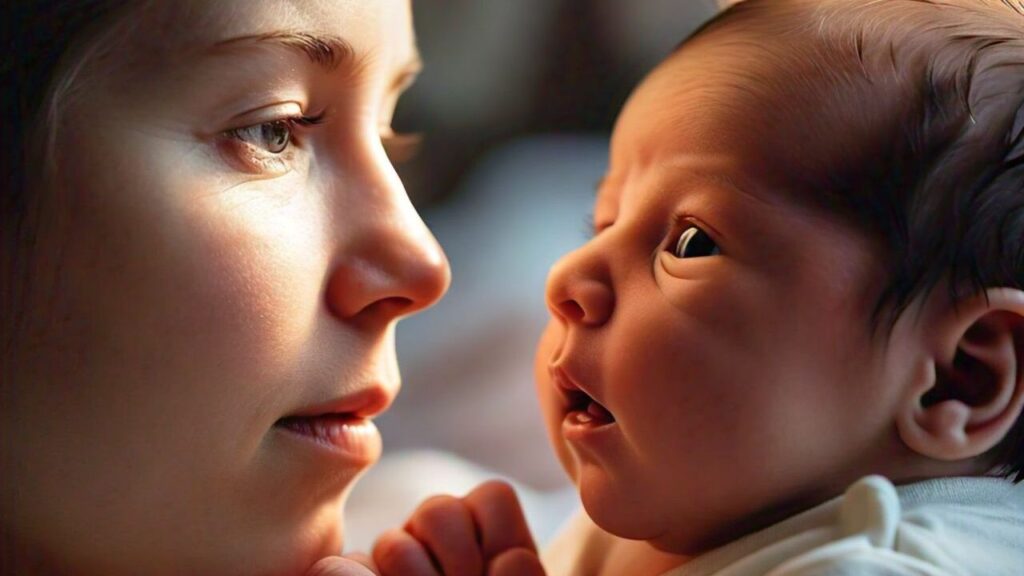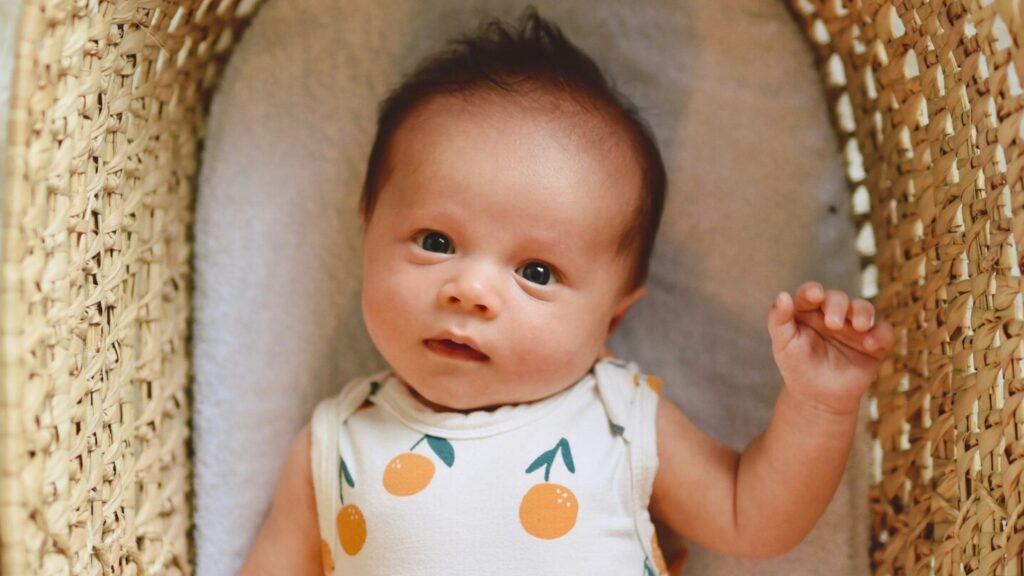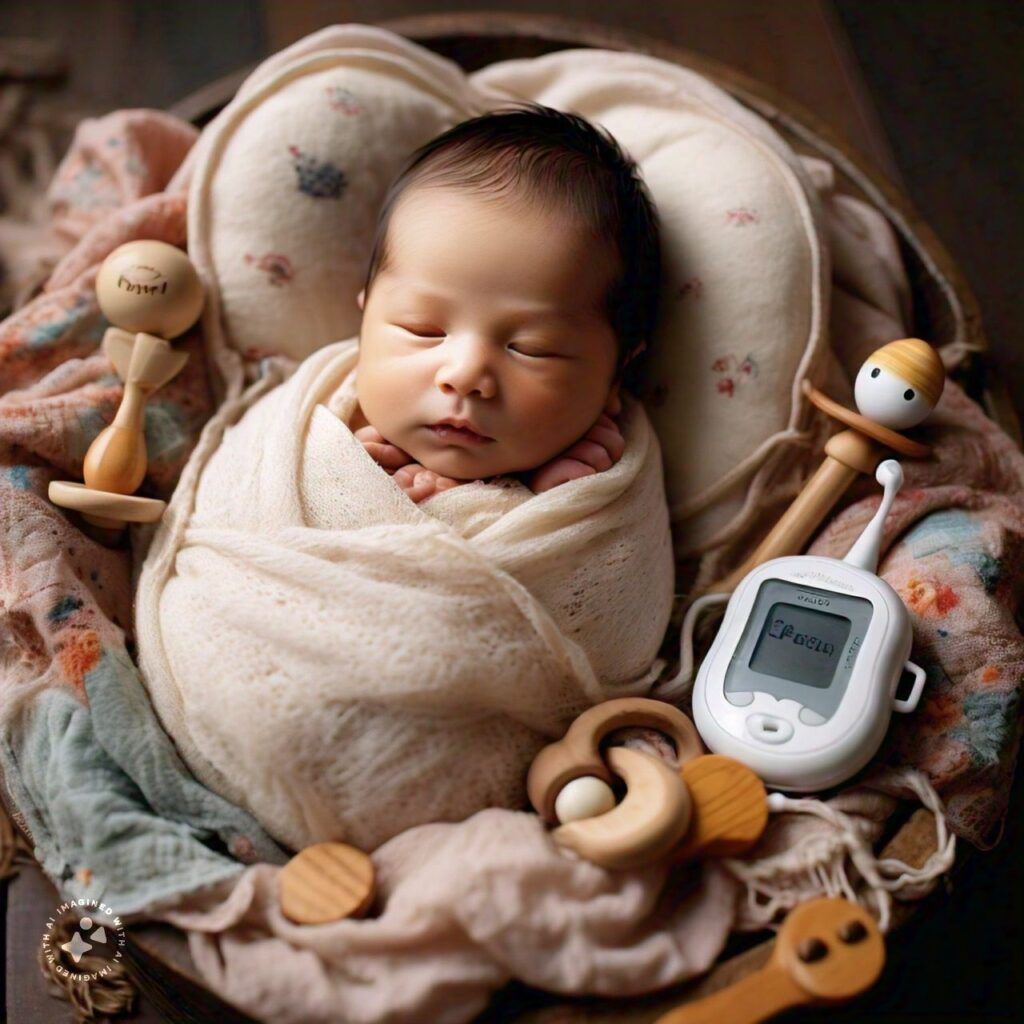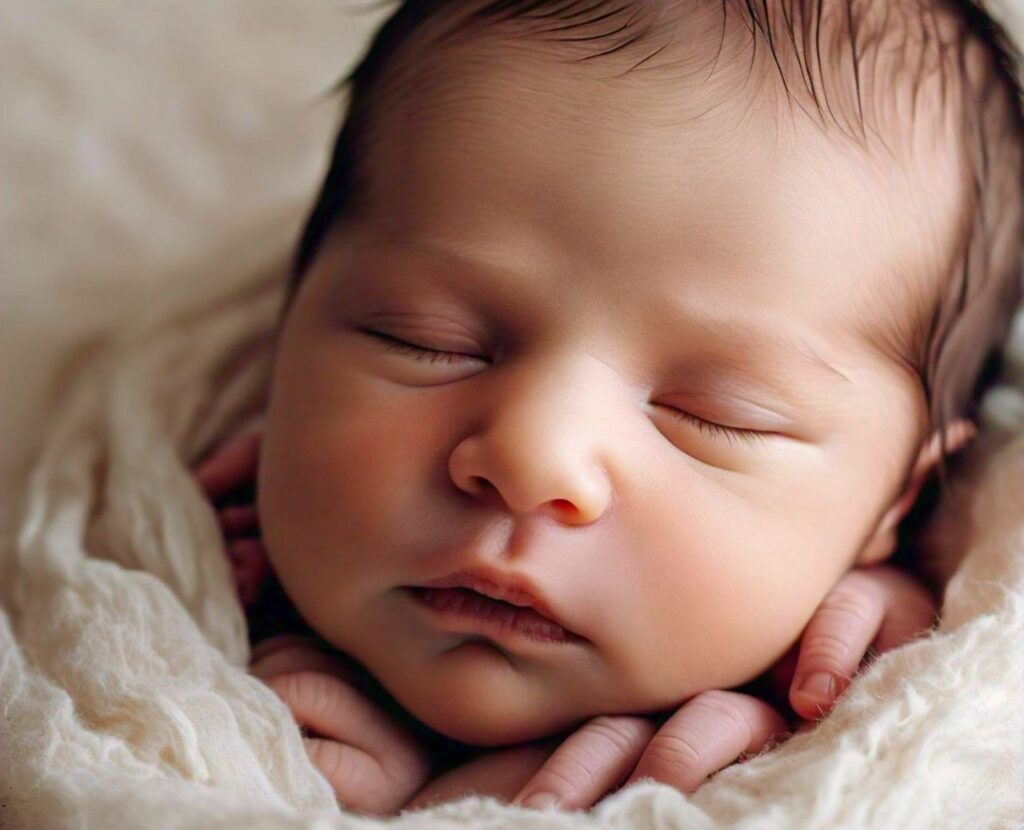Newborn’s vision: how to care for your babies eyes?
Congratulations, new parents! As you cradle your precious newborn, you might find yourself gazing into their eyes and wondering what they see. Let’s dive into the fascinating world of newborn vision, milestones, and tips to ensure your little one’s eyes develop healthily. We’ll keep things friendly, and a tad bit emotional—just like a heart-to-heart chat over coffee.
Understanding Newborn’s Vision: Developmental Milestones and Key Stages
What can babies see at 1 week?
In those first magical days, your baby’s vision is still very much a work in progress. At one week old, they can see objects that are about 8-12 inches away. That’s roughly the distance to your face when you’re holding them. Though their vision is quite blurry, they can make out high-contrast patterns and shapes. So, don’t be surprised if they seem to focus (the focus is called fixing) more on the light and dark contrasts around them rather than specific details.

By two weeks, your baby is starting to recognize patterns and shapes a bit more clearly, but the things around are still pretty fuzzy. Bright, high-contrast objects or toys can catch your baby’s attention. Baby might even start to follow them with eyes.
What Do Babies See at 1 Month?
At one month, your baby’s vision has improved enough to start tracking moving objects more effectively. They can focus better on objects about 12 inches away, and you might notice them following your face or a colorful toy. Colors are starting to become more vivid.
At What Age Can a Newborn See You?
Newborns can technically see you from birth, but not very clearly. By around two to three months, they begin to recognize faces, especially those they see most often, like yours. So, keep those lovely face-to-face moments going—they’re bonding and learning experiences rolled into one.
When Can Babies See Fully?
Your baby’s vision continues to sharpen over the first year. By six months, they have much better color vision and depth perception. Around their first birthday, most babies’ vision is close to that of an adult’s, making the world a much more fascinating place for them.

Detecting Vision Problems in Newborns: Signs and Home Tests
How to Check Newborn Eyesight at Home?
You can do a few simple checks at home to see how your baby’s eyes are developing. Try moving a colorful toy slowly in front of their face and see if they track it. Notice if they blink in response to bright lights or if they seem to follow your face when you move it side to side. These small tests can give you a glimpse into their developing vision.
How Do I Know if My Baby Has Poor Vision?
Look out for signs like your baby not making eye contact, not tracking objects, having misaligned eyes (crossed eyes), excessive tearing, or being overly sensitive to light. If you notice any of these signs, it’s a good idea to discuss them with your pediatrician.
Can Doctors Tell if a Newborn is Blind?
Doctors can often detect serious vision problems in newborns during routine check-ups. They’ll look for normal eye structure, reflexes, and responses to light. If there are any concerns, your pediatrician might refer you to a pediatric ophthalmologist for further tests.
What is Normal Eye Movement for a Newborn?
It’s normal for newborns to have somewhat irregular eye movements. They might occasionally cross their eyes or have difficulty focusing. This usually settles as their coordination improves. Consistently misaligned eyes, however, should be evaluated by a doctor.
Does TV Affect Babies’ Eyesight?
While the occasional glance at the TV isn’t likely to cause harm, prolonged exposure can strain your baby’s developing eyes. It’s best to limit screen time and engage your baby with interactive activities that promote healthy visual development.
Caring for Your Newborn’s Eyes: Tips and Techniques
How Can I Improve My Baby’s Eyesight?
To support your baby’s vision development, provide a stimulating environment with various shapes, colors, and patterns. Interactive play, plenty of tummy time, and regular check-ups will all contribute to healthy eyesight.
How to Strengthen a Newborn’s Eyes?
Encourage eye movement by using toys that move or make noise. Simple tracking games, like moving a toy slowly in front of their face, and offering plenty of tummy time can help strengthen those little eye muscles.
How to Get a Newborn to Open Eyes?
Newborns often keep their eyes closed due to sleepiness or light sensitivity. You can gently stimulate them by talking softly, dimming bright lights, or using a soft, colorful toy to encourage them to open their eyes.
What Can Damage a Baby’s Eyesight?
Protect your baby’s eyes from excessive exposure to bright sunlight without protection, physical injuries, certain infections, and prolonged screen exposure. Ensuring good hygiene and a safe environment can help prevent damage.
Can Babies See in the Dark?
Babies can’t see in complete darkness, but their low-light vision is quite good. A dim night light can help them feel secure without straining their eyes.
Sensory Development in Newborns: Vision and Beyond
Which Sense is Developed First in Newborns?
The sense of touch is the first to develop in newborns, even before birth. This is closely followed by the senses of smell and taste. Vision and hearing continue to develop more fully after birth, with vision being one of the last senses to mature.
Why Do Babies Stare at Their Mothers?
Babies are naturally drawn to faces, especially their mama’s face. It’s comforting and familiar, and they find human faces fascinating. This staring is a part of bonding and learning to recognize the people who love them the most.
How Soon Can a Baby Recognize His Mother?
Babies can recognize their mother’s voice and smell from birth. Visual recognition develops over the first few weeks, and by around 1-2 months, they can start to recognize and show a preference for their mother’s face.
Navigating the world of newborn vision can be both exciting and a bit daunting. By understanding the developmental milestones, recognizing signs of potential issues, and engaging in activities that support healthy vision, you can help ensure your baby’s eyes develop properly. And remember, regular check-ups with your pediatrician are key to keeping track of your baby’s visual development. Enjoy these precious moments as you watch your little one discover the world, one fuzzy glance at a time!
This friendly, conversational guide should give you a comforting and informative look into your newborn’s visual world. Happy parenting!


